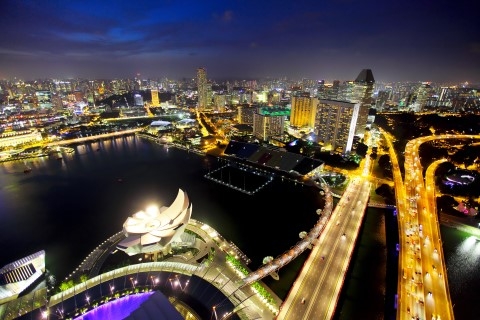
Singapore is no longer the 2nd costliest Asian city
But luxury item prices continued to climb 2.4% from last year.
Singapore dropped from its ranking as the second most expensive city in Asia, Julius Baer revealed. Shanghai fell a notch from first place and got replaced by Hong Kong.
According to a report, Singapore’s basket of luxury items jumped 2.4% from last year due to a rebound in property prices (+7%) and large gains in prices for cigars (+32%), golf club memberships (+22%) and legal fees (+18%). This outpaced the index’s +1.42%.
Singapore is the most expensive regionally to engage a lawyer and second most expensive for fine dining (US$283) and cigars. There are no apparent bargains for the Singaporean shopper apart from jewellery (third cheapest regionally).
It also continues to be the most expensive city to purchase a brand new BMW 7-Series sedan (US$418,052) due to import duties and regulatory taxes. Tokyo is the cheapest overall to procure the car (US$151,563).
Meanwhile, a moderation in property prices from cooling measures have enhanced the value proposition of Singapore real estate. “Demand for property is gradually returning with improved transaction volume over the past year in 2016,” the report said.
Property prices in Singapore saw the second largest improvement (+7.9%), just behind Manila (+14.9%). Julius Baer said the island nation continues to remain attractive to investors in the midst of market uncertainty, supported by active urban development plans and the government’s proactive initiatives.
Singapore saw the largest decline for luxury hotel prices (-21.2%) due to the harsher operating environment this year where there has been a steady expansion of hotel room supply amidst tepid demand. “A majority of hoteliers in Singapore have reported weaker sequential net property income due to continued pressure on average daily rates,” Julius Baer said.
It noted, however, the outlook for the sector seems to be on the mend. “Most hotel REITs are sensing that the booking pace at their hotels are also improving in H2 2017 with most expecting to be able to price up average daily rates (ADRs) come 2018 on the back of a stronger line-up in meetings and conventions throughout the year. This will also coincide with a drop off in supply growth in 2018.”
The prices of flights and Lasik also dropped 13.1% and 13.7%, respectively.
Julius Baer expects the Singapore economy to expand by 2.5% in 2017 and 3% in 2018 and inflation to jump to 2% in 2018. “We expect Singapore to resume positive consumer price inflation after a prolonged deflationary bout in 2015 and 2016. This will be driven by higher water prices and higher fiscal spending.”
Despite the recovery in the industrial sector, low global external demand - in particular a slowing China - could start to weigh on the highly export-dependent economy by 2017, it added. “Over the long term however, we believe strong fundamentals make the Singapore dollar a relatively safe investment.”
























 Advertise
Advertise










